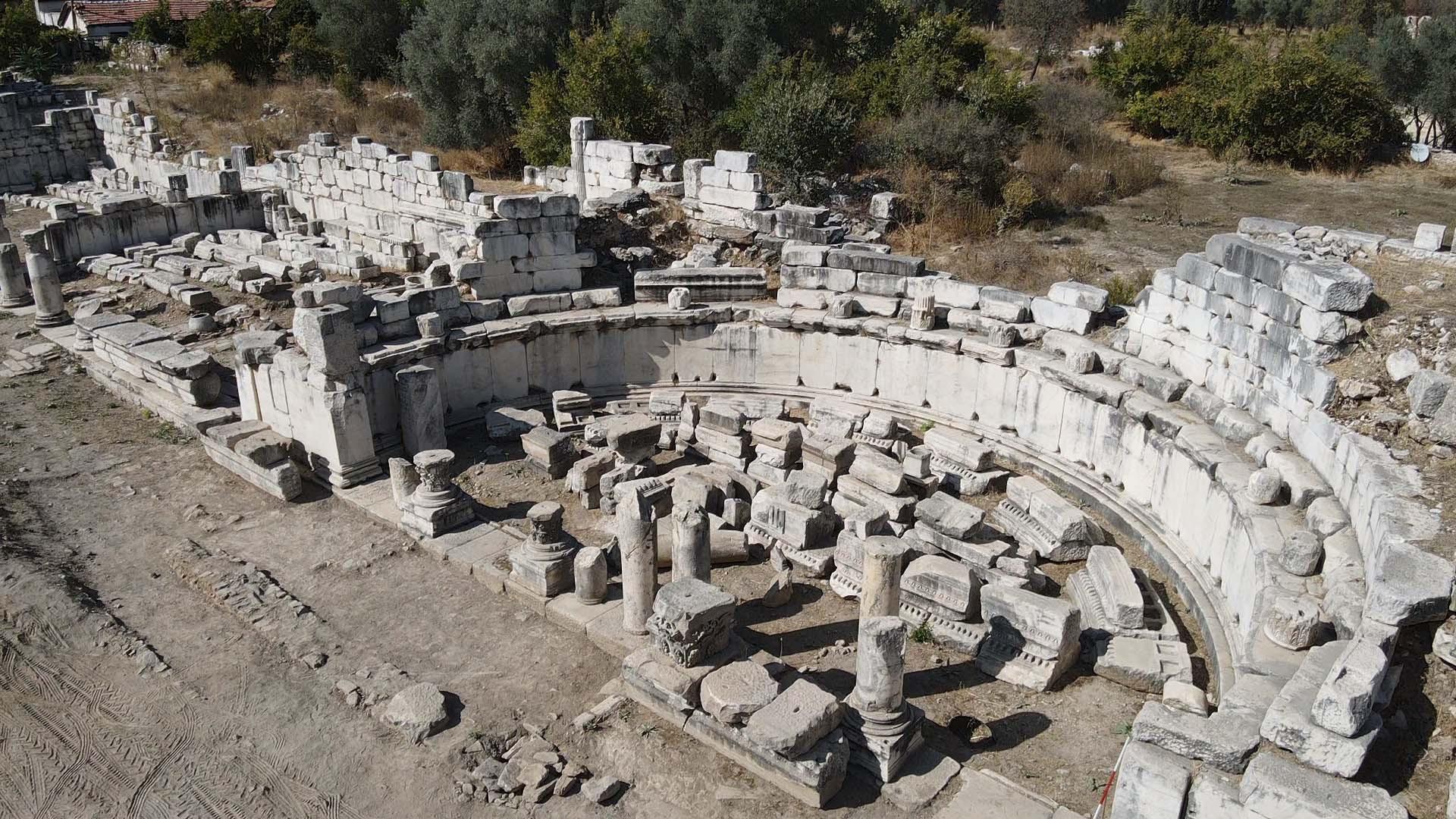
The restoration of the 2,200-year-old gymnasium (school of sports) in Stratonikeia, known as the “City of Gladiators” and recognized as the world's largest marble ancient city, is ongoing in the southern province of Muğla as part of the Culture and Tourism Ministry's Heritage for the Future Project.
The head of the Stratonikeia and Lagina excavations, Professor Bilal Söğüt said that the gymnasium is one of the most monumental structures in the city.
Söğüt noted that they are conducting a comprehensive conservation project on the site.
“We are uncovering facilities such as bathing, oiling, powdering, storage rooms, and youth areas located on the northern edges of the largest gymnasium of the ancient period,” he said.
He explained that they are also identifying the nature of the spaces where students received both intellectual and physical training, as well as working to uncover the monumental column arrangement and the portico in front of this area.
“The gymnasium is not only significant for Stratonikeia but is also one of the largest structures of the ancient period. This is where the most magnificent building of the Hellenistic era in Anatolia was constructed 2,200 years ago,” he said.
Söğüt highlighted the impressive facade arrangements and stone craftsmanship, including acanthus (a plant figure used to decorate column capitals in ancient Greek architecture), which first appeared in Egypt during the Hellenistic period and were later identified as the first examples in Anatolia. “We have found the finest half and full examples of the grand Corinthian capitals from the 2nd century B.C. here. This place serves as an architectural school.”
Söğüt, who emphasized that their future goal is to revive the northern walls and columns in front of the gymnasium with their own materials, added that they are continuing the restoration work in the Village Square, which bears traces of the Principalities, Ottoman and Republic periods, located next to the gymnasium.